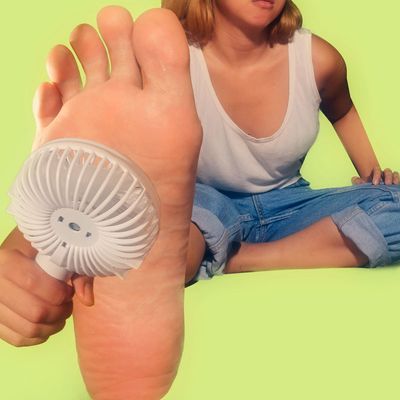Leading Dermatology Treatments for Hyperhydrosis of Hands and Feet: What You Need to Know
Leading Dermatology Treatments for Hyperhydrosis of Hands and Feet: What You Need to Know
Blog Article
Comprehending the Origin Causes of Excessive Sweating and Its Impact on Life
While it is typically recognized as a physiological response to manage body temperature level, the triggers for too much sweating can vary extensively among people, including not only physical aspects however psychological and also psychological elements. By diving right into the origin creates of hyperhidrosis and exploring its multifaceted impacts, a much deeper understanding of this pervasive problem can be gained, shedding light on the complexities that people grappling with excessive sweating browse on an everyday basis.
Physiology of Sweat Glands
The law of sweat production, a critical physical process, is mostly managed by the activity of sweat glands distributed across the human body. Sweat glands are classified right into 2 primary types: eccrine and apocrine glands.
When the body temperature increases, either because of exercise, heats, or psychological tension, the nerve system causes the gland to create sweat. This sweat is made up mainly of water and electrolytes like salt and chloride. The process of sweat production is crucial for keeping the body's inner temperature level within a narrow, ideal range, highlighting the important role sweat glands play in human physiology.
Triggers for Excessive Sweating
In understanding the origin of too much sweating, it is essential to determine the triggers that can result in this physiological feedback. Too much sweating, also recognized as hyperhidrosis, can be triggered by various factors, both ecological and physiological. One common trigger is emotional stress and anxiety or anxiousness, which can boost the body's sweat glands to create more sweat than is required for cooling. Physical physical effort, high temperature levels, and spicy foods are additionally recognized to activate excessive sweating in people vulnerable to this condition. Particular clinical conditions like menopause, diabetes mellitus, or hyperthyroidism can add to too much sweating as well.
Furthermore, drugs such as some antidepressants, opioids, and particular supplements can also act as triggers for hyperhidrosis. Understanding these triggers is necessary in managing extreme sweating successfully - Exessive Sweating. By identifying and resolving the details triggers that trigger excessive sweating in an individual, medical care providers can establish personalized treatment plans to relieve this condition and enhance the person's lifestyle
Medical Conditions Associated
Associated with too much sweating are numerous clinical problems that can exacerbate this physiological response. One common condition is hyperhidrosis, a condition identified by unusually raised sweating that exceeds the body's thermoregulatory requirements. This can materialize in focal areas like the palms, soles, underarms, or face, impacting an individual's lifestyle due to social humiliation and pain.
Additionally, endocrine disorders such as hyperthyroidism, diabetic issues, and menopausal hot flashes can likewise lead to excessive sweating. Hyperthyroidism creates an overproduction of thyroid hormonal agents, accelerating metabolic rate and setting off sweating.
Furthermore, infections like hiv, endocarditis, and tuberculosis have been related to evening sweats, an usual signs and symptom known to interrupt sleep and affect general wellness. These clinical problems highlight the varied variety of underlying factors that can add to excessive sweating, requiring complete assessment and management by health care experts.
Emotional and psychological Variables

Influence On Social Communications
Too much sweating can have profound results on a person's capability to involve pleasantly in social communications. The visible indicators of sweat discolorations or damp spots on clothing can lead to embarrassment and self-consciousness, triggering individuals to take out from social situations. This withdrawal can impact relationships, limit social tasks, and impede professional and personal development.

Moreover, the anxiousness and self-worth issues coming from excessive sweating can influence interaction and social skills. Individuals may struggle to concentrate on discussions, take part in group activities, or share themselves with confidence. This can result in sensations of seclusion and isolation, as social links come to be challenging to keep.
Conclusion

While it is frequently understood as a physical feedback to manage body temperature level, the triggers for extreme sweating can vary widely among people, encompassing not only physical factors however likewise emotional and emotional aspects. By diving into the origin triggers of hyperhidrosis and discovering its complex effects, a much deeper understanding of this prevalent issue can be acquired, losing light on the intricacies that individuals grappling with excessive sweating browse on an everyday basis.
Physical Treatment for hyperhydrosis of hands and feet effort, high temperatures, and spicy foods are also recognized to trigger excessive sweating in individuals vulnerable to this condition. By recognizing and addressing the details triggers that prompt extreme sweating in a private, medical care service providers can establish customized treatment strategies to alleviate this condition and boost the person's top quality of life.
Too much sweating can have extensive results on an individual's capability to involve comfortably in social communications.
Report this page